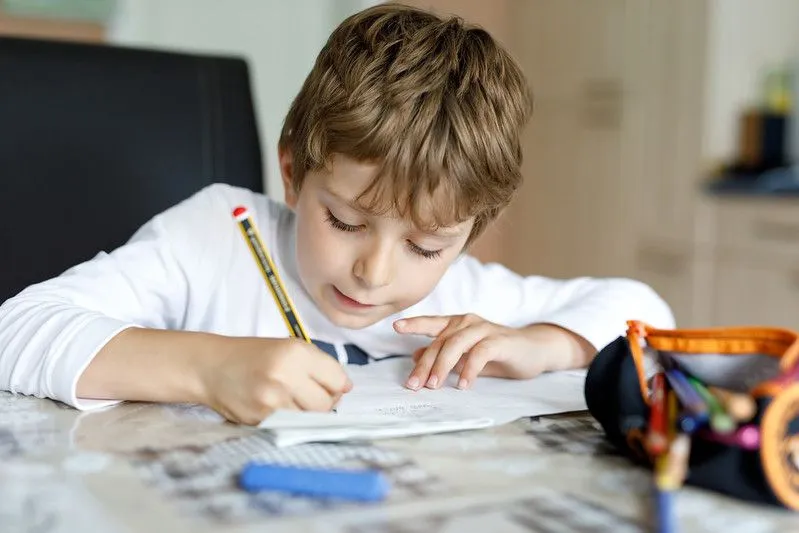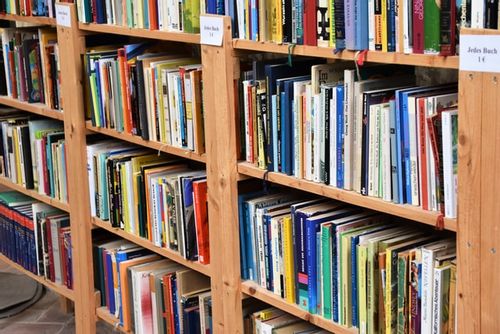FOR ALL AGES
By the time your primary school-aged child reaches Year 2 (the last year of KS1), there are a number of new words that they'll need to learn how to spell correctly.
It might seem daunting at first, but with a little practise, they'll get there. So here's how you, as a parent, can support them in year 2. Spellings that should be on your 'to learn' list include 'bridge', 'table' and 'station'. You'll also find a number of common exception words on the menu, such as 'again', 'eye', 'hour' and 'water'.
Here's a quick rundown, and some handy lists, to help you and your child in Year 2 learn the right spellings and use them correctly, without tying yourself in knots.
The National Curriculum has guidelines about spelling, outlining what your Year 2 child will need to learn.
Some spellings and spelling rules that children in this age group should be taught include:
Words with 'dge' at the end. For example: badge, bridge.
Those with 'ge' at the end. For example: age rage, huge.
'S/c' sounds. For example: race, ice, face.
'Kn' words. For example: knock, knee.
'Wr' words. For example: wrap, write.
Words ending in 'le'. For example: table, apple, bottle.
Words ending in 'el'. For example: camel, tunnel.
Those ending 'al'. For example: pedal, capital.
Those ending 'il'. For example: pencil, nostril.
Words ending 'y'. For example: fly, cry, try.
Ones with 'al' in them. For example: walk, talk, ball, call.
'Y' ending words that become 'ies' when they change tense, or become a plural. For example: try to tries, fly to flies, baby to babies.
Those ending in 'e' where you add 'ing', 'est', 'er', 'ed' or 'y'. For example: hiked, hiking, hiker; nice, nicest, nicer
Spellings where you add 'ing', 'ed', 'er', 'est' and 'y' to words ending in a single consonant after a single vowel. For example: pat, patting, patted, fat, fattest, run runny
Spellings that end in 'tion'. For example: station, fiction, motion, section.

There's quite a long list of new words that your child should know by Year 2 of primary school. Some of these don't follow the usual rules for pronunciation, however, so your Year 2 children might need some extra help with them. They're what we call 'common exception words'. It's worth taking some time working out how to use them properly. You might find this list helpful, showing common exception words.
Year 2 pupils should know the spelling of:
After
Again
Any
Bath
Because
Behind
Beautiful
Break
Busy
Child
Christmas
Class
Climb
Clothes
Cold
Could
Door
Even
Every
Everybody
Even
Eye
Fast
Father
Find
Floor
Gold
Grass
Great
Half
Hold
Hour
Improve
Kind
Last
Many
Mind
Money
Most
Move
Mrs
Mr
Old
Only
Parents
Past
Pass
Path
People
Plant
Poor
Pretty
Prove
Should
Steak
Sugar
Sure
Told
Water
Wild
Who
Whole
Would
Spelling correctly might take a little time, especially if the rules are brand new. So don't panic if your Year 2 child doesn't know every spelling instantly, and go at a pace that's comfortable for you both. You'll get there in the end - and the best tip of all is keeping up a love of reading.
Some tips for learning spellings, and how to use them correctly, include:
Breaking words up into their component sounds, or sounding out.
Reminding them of the rules they have already hopefully picked up during Year 1 phonics lessons at school.
Helping them look for patterns or groups of letters in similar-sounding words. For example: cold, gold, hold and old. You could try writing out lists in bright gel pens together, or as bubble writing, to make into an art project.
Using over pronunciation, when you read certain words aloud.
Get the highlighters out. For example, write out a spelling like 'knee' or 'know', and highlight the 'kn' portion to help them remember the 'tricky part'.
Play games like hangman or Scrabble together to make learning a new spelling fun. You can also find some cool word games online.
Write out letters on pieces of card, then challenge your child to spell things out, with a treat or reward for getting, say, 5 in a row correct.
Write out your own word search, and include a tricky spelling where possible, with lists of the answer to cross off.
Read The Disclaimer
At Kidadl we pride ourselves on offering families original ideas to make the most of time spent together at home or out and about, wherever you are in the world. We strive to recommend the very best things that are suggested by our community and are things we would do ourselves - our aim is to be the trusted friend to parents.
We try our very best, but cannot guarantee perfection. We will always aim to give you accurate information at the date of publication - however, information does change, so it’s important you do your own research, double-check and make the decision that is right for your family.
Kidadl provides inspiration to entertain and educate your children. We recognise that not all activities and ideas are appropriate and suitable for all children and families or in all circumstances. Our recommended activities are based on age but these are a guide. We recommend that these ideas are used as inspiration, that ideas are undertaken with appropriate adult supervision, and that each adult uses their own discretion and knowledge of their children to consider the safety and suitability.
Kidadl cannot accept liability for the execution of these ideas, and parental supervision is advised at all times, as safety is paramount. Anyone using the information provided by Kidadl does so at their own risk and we can not accept liability if things go wrong.
Kidadl is independent and to make our service free to you the reader we are supported by advertising.
We hope you love our recommendations for products and services! What we suggest is selected independently by the Kidadl team. If you purchase using the buy now button we may earn a small commission. This does not influence our choices. Please note: prices are correct and items are available at the time the article was published.
Kidadl has a number of affiliate partners that we work with including Amazon. Please note that Kidadl is a participant in the Amazon Services LLC Associates Program, an affiliate advertising program designed to provide a means for sites to earn advertising fees by advertising and linking to amazon.
We also link to other websites, but are not responsible for their content.
Was this article helpful?



Browse Category



We’ll send you tons of inspiration to help you find a hidden gem in your local area or plan a big day out.



Check your inbox for your latest news from us. You have subscribed to:
Remember that you can always manage your preferences or unsubscribe through the link at the foot of each newsletter.